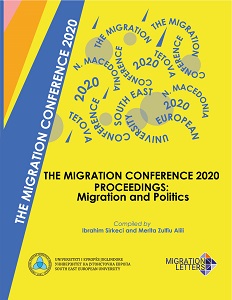The Culture Of Migration: A Case Study From Punjab
The Culture Of Migration: A Case Study From Punjab
Author(s): Shweta Sinha Deshpande
Subject(s): Culture and social structure , Migration Studies
Published by: Transnational Press London
Keywords: culture; migration; social; political; institutional;
Summary/Abstract: Migration does not take place in a social, cultural, political and institutional void (de Haas 2008). It is socially embedded and culturally informed within the transnational social field of the sending and receiving communities creating a ‘culture of migration’ embedding economic and cultural values to the aspiration and inclination of mobility (Glick-Schiller, Basch and Blanc, 1992; Levitt, 2001; Kandel and Massey, 2002; Jónsson, 2008). Transnational networks influence not just the life of immigrants but also the communities and countries of origin in all socio-cultural aspects including religion. It builds social fields in the form of social remittance that are transformed to social capital which is aspired by the non-migrant. The transnational experience of the non-migrant leads to new aspirations among individuals and families strengthening old traditions of migration, while also reinforcing new paths and destinations. This need to immerse and embrace the global cultural economy has resulted in the ‘culture of migration’ in the Doab region of Punjab over the last century. While there is an increase in the non-Jat, migrations out of Punjab, the opportunities are restricted for the unskilled to low paid and temporary jobs which are insecure and individualised. The unskilled aspirant with low social and financial capital takes the burden of limiting possibilities of mobility leading to a state of ‘involuntary immobility’ (Carling, 2002) within a culture of migration. The non-migrant while not moving spaces through physical mobility, is nevertheless engaged with changed contexts of living experiences and expectations. Migration literature however, does not account for the experiences of the non-migrant and the social fields that they engage with. For a complete understanding of the migration network, the paper presents an ethnographic account of the economic, social and psychological dimensions of the aspirant’s departure context outlining the negotiations and renegotiations with human and beyond human mechanisms further promoting a culture of mobility among populations. The current research adds to the Indian experience of transnationalism and the culture of migration in the region of Punjab by exploring the socio-economic and religious intersections of a population with a long tradition and history of migration. The work outlines a certain degree of emotional and psychological gravity that permeates the cultural and social space of the region through accounts of people’s aspirations, in context of the multi-million-dollar migration industry and the influence it has on the narratives established with media, employment and educational opportunities and everyday lived experiences including religion as a coping mechanism in dealing with the problems and hurdles of migration reiterating the global realities within localised fields.
Book: The Migration Conference 2020 Proceedings: Migration and Politics
- Page Range: 139-147
- Page Count: 9
- Publication Year: 2020
- Language: English
- Content File-PDF

